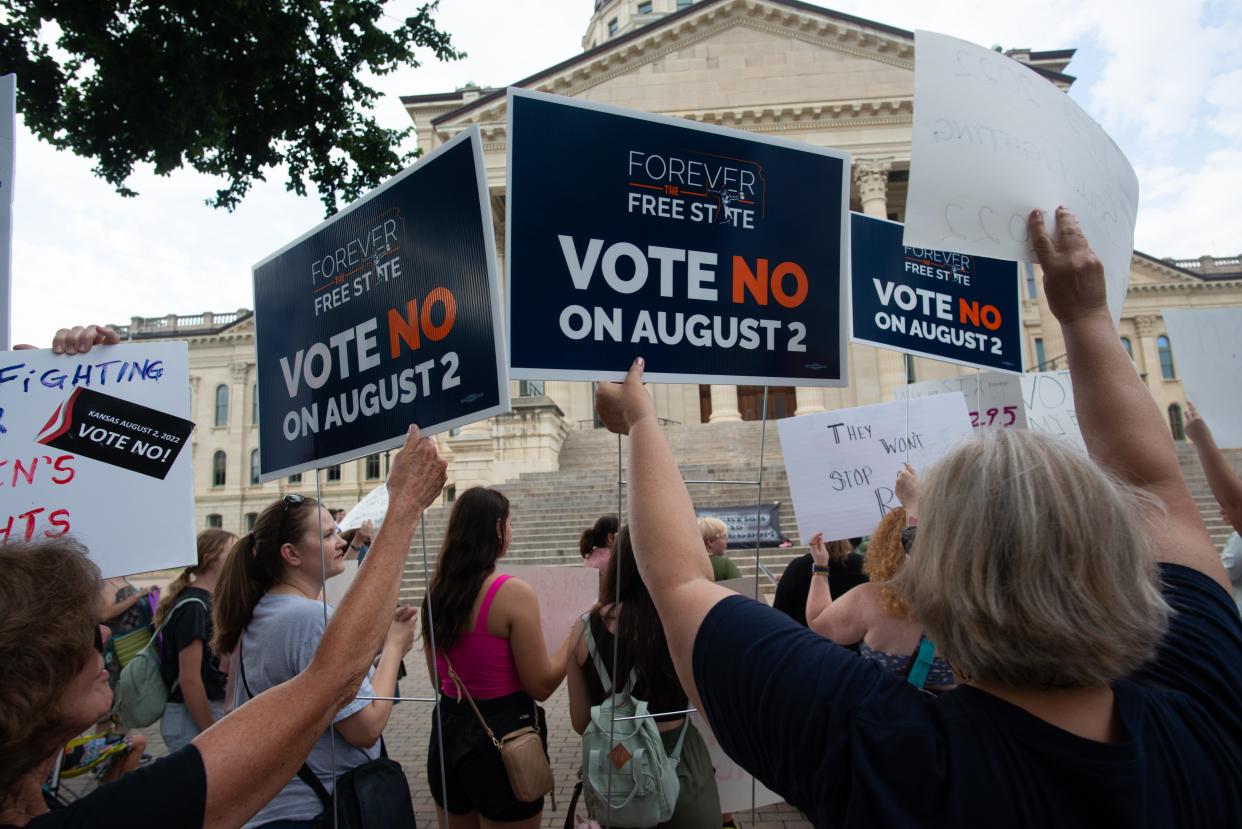Kansas abortion providers sue to block 24-hour waiting period, among key restrictions

Kansas abortion clinics challenged a suite of restrictions in court Tuesday, including a requirement set to take effect next month that would require they inform patients about the medically disputed notion that the effects of abortion pills can be reversed.
The lawsuit, filed in Johnson County District Court by an Overland Park abortion clinic and Planned Parenthood of the Great Plains, goes beyond the new law, however, and argues the entirety of a decade-plus-old statute requiring providers obtain informed consent before performing an abortion is unconstitutional.
The legal challenge maintains the law, including the abortion pill reversal component, contradicts a 2019 Kansas Supreme Court ruling that the state constitution protects a right to an abortion. It implicates a long-standing requirement, for instance, that women have a 24-hour waiting period before obtaining an abortion.
It seeks to block implementation of the abortion pill reversal language, which is set to take effect on July 1, and strike down the entirety of the broader statute, dubbed the Women's Right to Know Act.
More: Kansas tries to require abortion reversal pill disclosure — despite dispute over science
The news comes nearly a year after Kansas voters soundly rejected a proposed amendment to the state constitution to undo that high court ruling and remove constitutional abortion protections.
Clinics say they have seen a sharp rise in out-of-state abortion seekers in the wake of a U.S. Supreme Court ruling eroding national
"It has not had the burdensome effect as it has today as, more and more, our patients are driving so many hours," Emily Wales, president and CEO of Planned Parenthood of the Great Plains, said in an interview. "It is not something that happens on occasion. Literally every day, our abortion facilities in Kansas are seeing parents who are doing something that doesn't meet the 24 hour consent requirement."
Kansas abortion pill reversal measure the latest change to contested law
The Republican-controlled Legislature advocated for the abortion pill reversal measure, arguing that it did not restrict abortion procedures and was merely designed to give women more information.
Supporters believe that quickly administering doses of progesterone can counteract the impact of the abortion pill mifepristone, pointing to studies that underscore its effects. The American College of Obstetricians and Gynecologists, however, has said the treatment is "not based on science and do not meet clinical standards."
The abortion pill reversal requirement would force abortion providers "to serve as the State’s mouthpiece and disseminators for inaccurate and ideological government-scripted messages that are designed to pressure patientsinto choosing childbirth over abortion," the lawsuit said.
"This additional layer of regulation was piled on at a time when providers are struggling to meet the demands of anunprecedented surge of patients seeking abortion after the federal right to abortion was rescinded," the lawsuit said.
But the lawsuit also implicates a whole host of other restrictions, such as requirements that doctors obtain informed consent before performing an abortion and mandates that they provide women with a packet of materials about the perceived risks of an abortion and give the patient 24 hours to review the information.
More: Kansas lawmakers override anti-abortion vetoes months after voters spurned Value Them Both
Clinics say these provisions include language that isn't medically supported and makes their jobs more onerous.
The lawsuit argues, for instance, that requiring a 30-minute delay exist between a person meeting with their provider and receiving any abortion care, cause "emotional and psychological harm for patients."
In a statement, Danielle Underwood, a spokesperson for Kansans for Life, called the lawsuit an "unprecedented attack on a woman’s right to informed consent before an abortion is performed on her."
"Not only are they seeking to remove access to information that many women have deemed essential to this life-altering decision, they’re aggressively working to speed up the decision-making process, seemingly forcing women into abortion without discussion of alternatives," Underwood said.
The bulk of the statute at issue was passed in 2011 and the Legislature approved two additions to the law in subsequent years before enacting the abortion pill reversal language in April over the veto of Gov. Laura Kelly.
That move came alongside the Legislature overriding a series of other vetoes on abortion-related bills, including requirements that physicians provide care to infants "born alive."
Walsh said it was unlikely that Planned Parenthood would have standing to challenge that measure and said they were not planning any additional lawsuits on other Kansas abortion restrictions.
This article originally appeared on Topeka Capital-Journal: Kansas abortion providers challenge restrictions as unconstitutional

